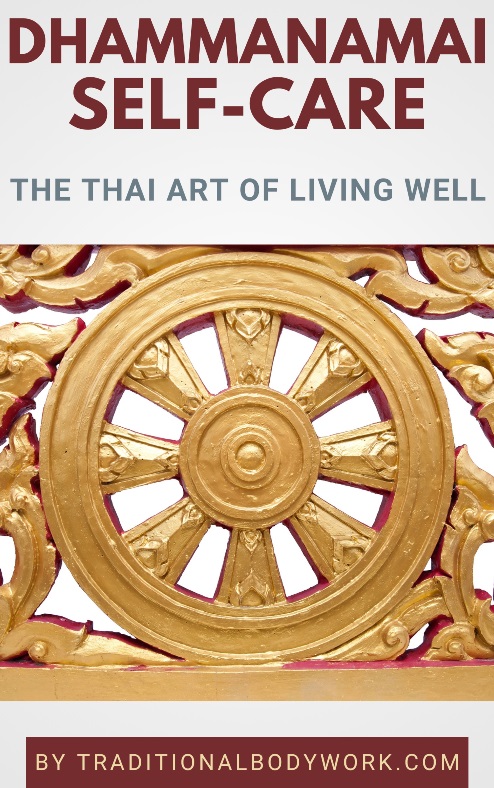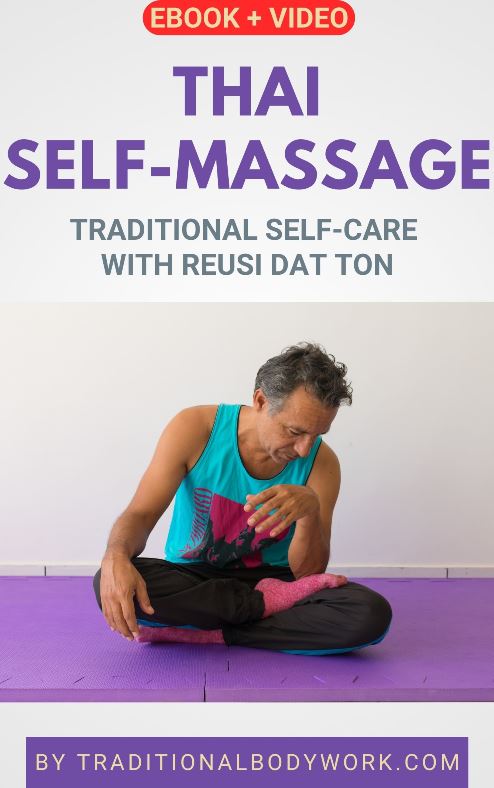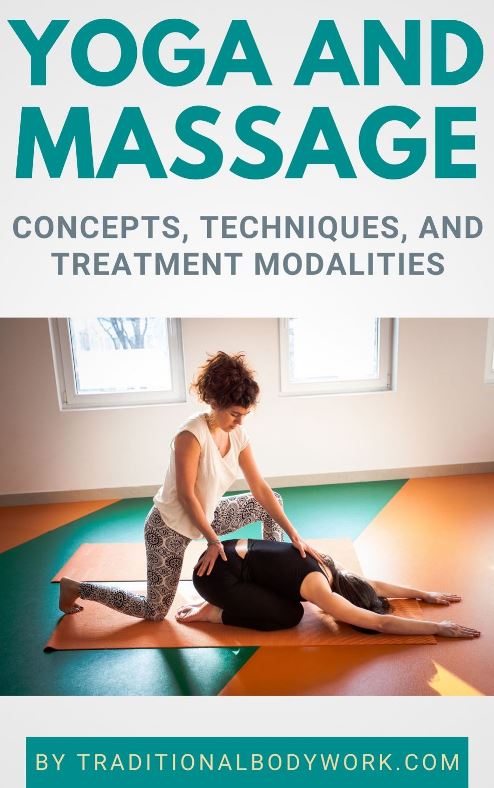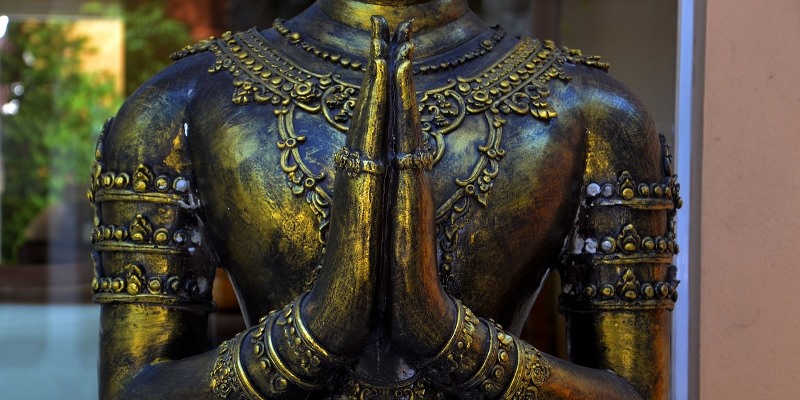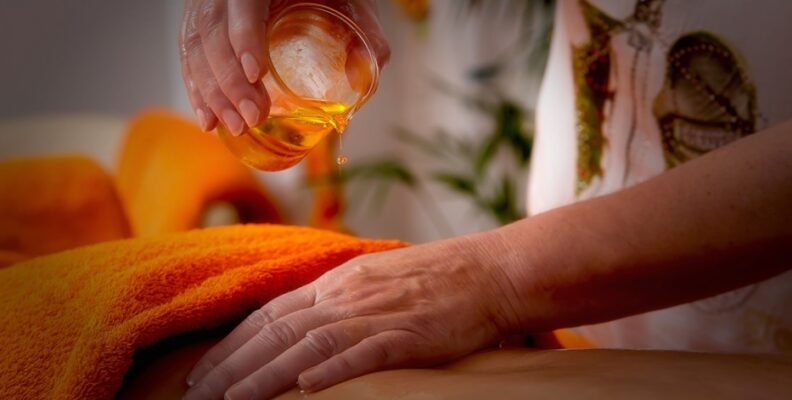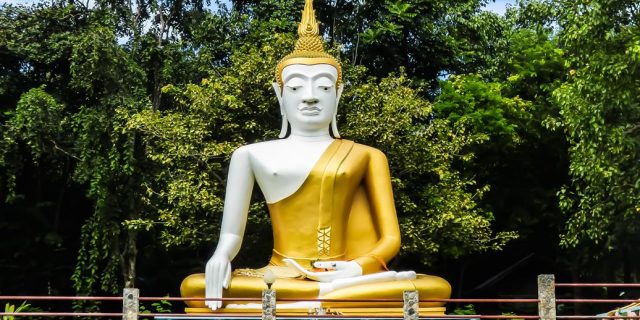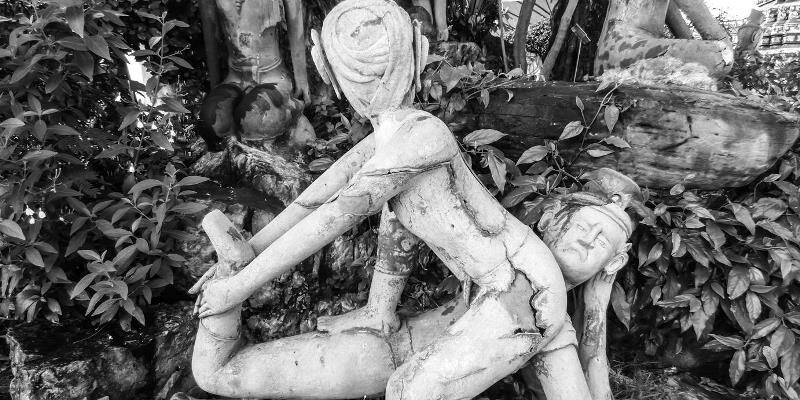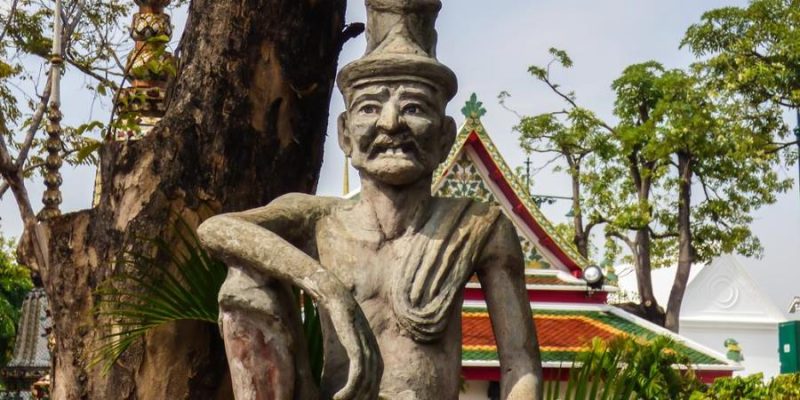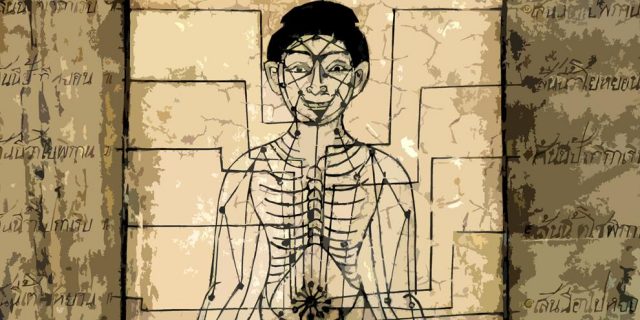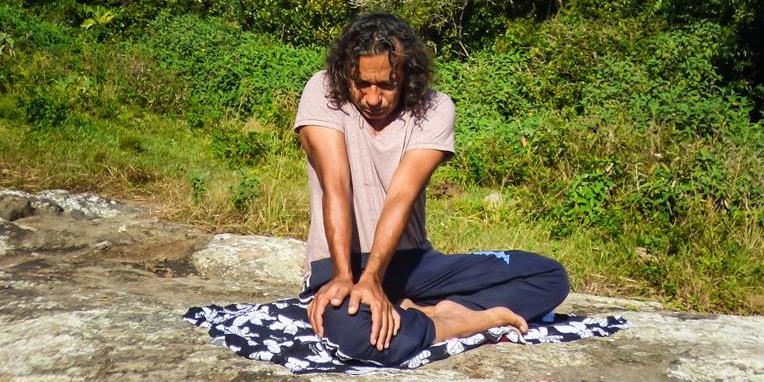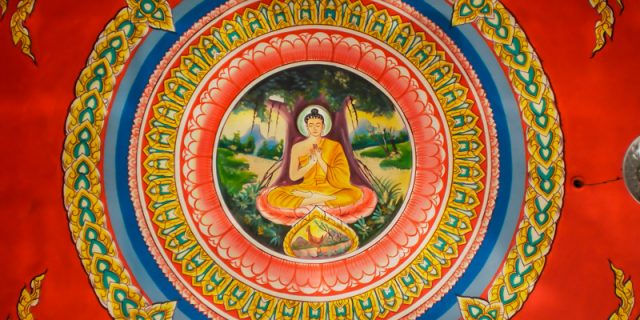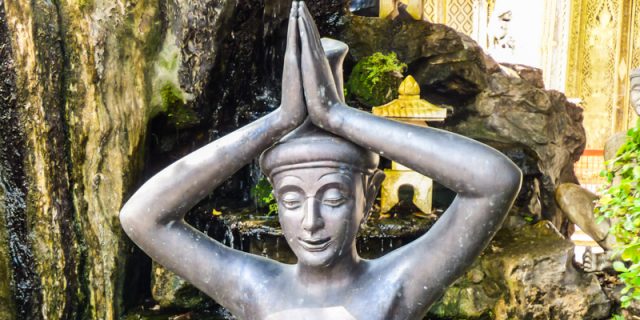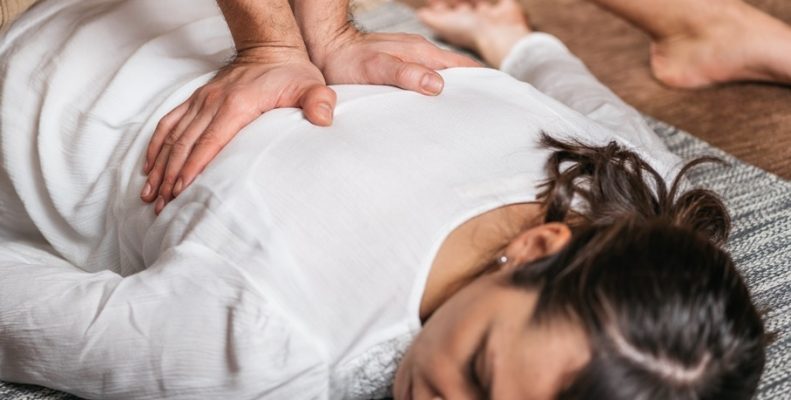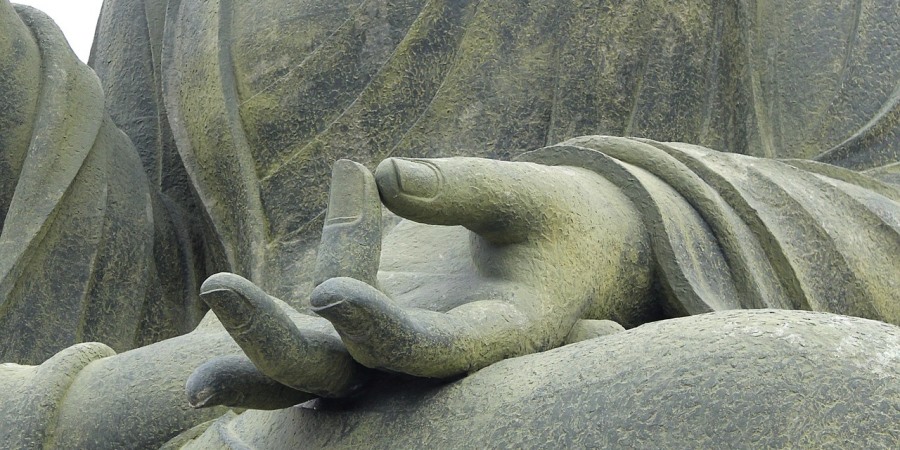
It’s difficult to appreciate Traditional Thai Massage well without an understanding of how Buddhism has made its mark on the practice.

Mind that Thai Massage is an integral part i.e. branch of Traditional Thai Medicine, and — as it is — TTM is also called Thai Buddhist Medicine, and well … not for nothing.
The spread of Buddhism from out India nearly two millennia ago has not only influenced existing healing practices or brought new medicinal knowledge, it had and still has a profound impact on the totality of cultural and social life in Thailand.
As for Thai Massage, there’s perhaps no other type of traditional massage that is more deeply influenced by Buddhism. A range of herbal applications, Ayurveda, Buddhist meditation practices, and Yogic therapies — all originating in India — are now integral aspects of TTM.
But then, let’s take a look at what aspects of the Buddhist religion influence Thai Traditional Massage.
Table of contents:
⦿ Buddhist Temples (Wats)
⦿ Buddhist Medical Texts
⦿ Ethics in Thai Massage
⦿ Wai Khru Ceremony
⦿ Metta – Loving Kindness
⦿ Buddhist Medicine and TTM
Jivaka Komarabhacca – Father of Medicine
For starters, Jivaka Komarabhacca (or Jivaka Kumar Baccha, among other spellings), who is said to have been the personal physician of the Buddha, is considered the founder of the Thai Traditional Medicine system, the “Father Doctor,” and moreover, he was a devout Buddhist and patron of the Buddhist Order.
Up to today, Thai healers and Thai Massage practitioners and teachers in Thailand say thanks to Doctor Jivaka, and in their daily prayers ask him for strength and wisdom in order to help healing people. Thus, in fact, Traditional Thai Massage is a form of Buddhist Medicine.
Buddhist Temples (Wats)
The Buddhist temples — called Wats in Thailand — and Thai monks have historically played an important role in both the preservation and application of Thai Traditional Medicine (and Thai Massage).
Notably the well-known Wat Pho temple in Bangkok had a pivotal role in preserving and disseminating ancient Thai healing wisdom, in fact, until today.
Although Thai Massage training is highly secularized nowadays, quite some Buddhist temples in Thailand still offer Thai healing arts treatments, such as Thai Massage, or even offer trainings.
Buddhist Medical Texts
Many classical Thai Medical texts integrate ideas about the body, disease, and healing originating from Theravada Buddhist texts, which go back to at least 2,000 years ago. In Thai Massage, as it’s practiced today, Buddhist ideas influence ethics and the intention of the healer (Metta – Loving Kindness), which we will discuss further on in this post.
Ethics in Thai Massage
A well-known code of ethics for Thai Massage therapists is the Thai Massage Practitioner Code of Ethics, which additionally incorporates the Five Precepts of Buddhism:
- 1. Refrain From Killing;
- 2. Refrain from Stealing;
- 3. Refrain from Dishonesty;
- 4. Refrain from Sexual Misconduct;
- 5. Refrain from Taking Intoxicants.
It’s said that these precepts have been introduced by the Buddha to promote harmony, compassion, and peace among mankind.
Wai Khru Ceremony
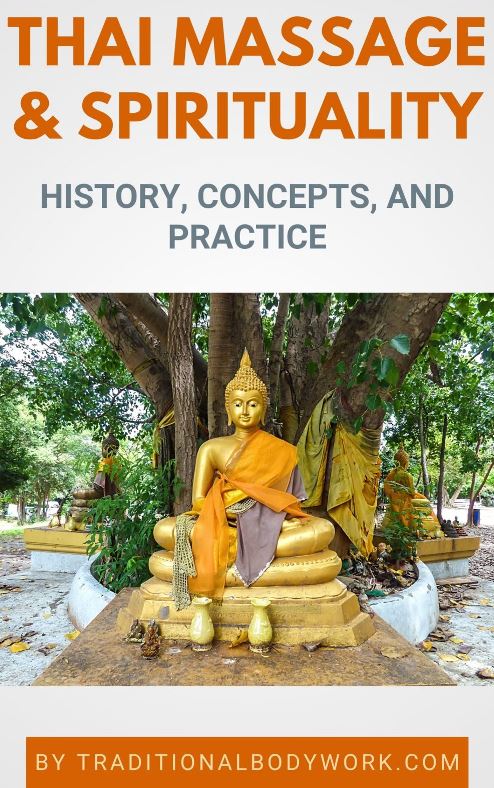
The Wai Khru ceremony in Thailand is a ritual in which one gives thanks to one’s teachers going back in time up to paying respect to the Lord Buddha. These ceremonies are not unique to Thai Massage or TTM. You will find Wai Khru rituals specific to certain arts, jobs, and various subcultures across Thailand.
Not only will Thai masseurs and teachers usually take a moment of silence, reflection, concentration and (Buddhist) meditation just before a massage session or class, as said before, it’s also a solemn testimony of respect and thankfulness to Dr. Jivaka Komarabhacca.
Wai Khru prayers or chants used are often performed in the Pali language, an ancient Indian language used in the time of the Buddha.
Metta – Loving Kindness
Thai Massage in Thailand is usually taught in a Buddhist context and the Buddhist concept of Metta is an important part of the Thai Massage practice.
Metta is usually translated as Loving Kindness and it’s a state of mind of the therapist that encompasses humility and gratitude, and a positive intention, loving awareness and compassion towards the client. It’s why we often read that giving Thai Massage is a meditative practice.
Buddhist Medicine and TTM
In Thailand, Buddhist Medicine is officially seen as an integral part of Thai Traditional Medicine, described as “the application of Buddhism or rites and rituals for mental health care.”
For instance, the practice of Dhammanamai, which includes the care for body, mind, society, and the environment is based on Buddhist relaxation techniques and morality.
Another well-known Buddhist practice is Vipassana Meditation, which is a widespread meditation technique used in Thailand and in Thai Buddhist temples.


